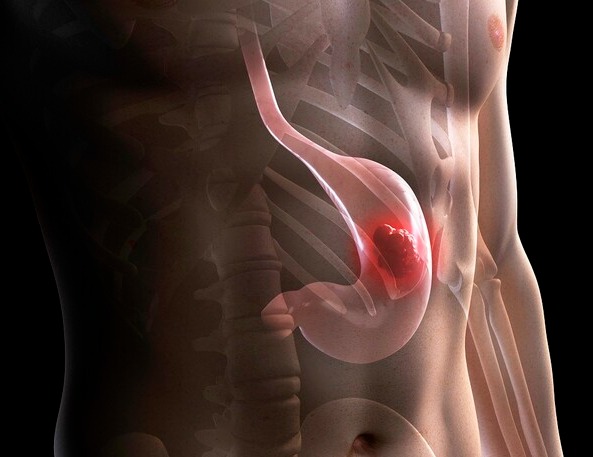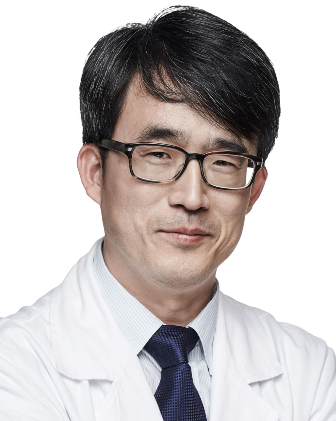Song Kyo-young, Professor of the Department of Gastrointestinal Surgery, the Catholic University of Korea Seoul St. Mary’s Hospital
Gastric cancer patients feel relieved after a successful surgery to remove the cancer from their stomach. Still, they are sometimes told that they must undergo additional chemotherapy.
The goal of adjuvant chemotherapy after surgery is to prevent the stomach cancer from coming back. Depending on how you look at it, it may or may not seem necessary. Here are the most common questions about adjuvant chemotherapy after stomach cancer surgery.

◆ Are anticancer drugs shots or pills?
Two methods are used. One is the “S-1 regimen,” an oral anticancer drug called TS-1, and the other is the “XELOX regimen,” a combination of an oral anticancer drug called Xeloda and an injectable drug called oxaliplatin.
The S-1 regimen comprises four weeks of morning and evening medication and two weeks off. The XELOX regimen involves an injection on day one, followed by two weeks of oral medication and one week off. If both regimens are repeated eight times, the S-1 regimen takes one year, and the XELOX regimen takes six months.
◆ Is it beneficial to take chemotherapy after surgery, and if so, how much?
If adjuvant cancer therapy is recommended after surgery for gastric cancer, it is beneficial. Two large clinical trials showed better survival in patients with stage 2 and 3 gastric cancer who received chemotherapy after surgery compared to surgery alone.
In the XELOX regimen, the three-year survival rate was 59 percent in the surgery arm and 74 percent in the surgery plus chemo arm. In the TS-1 regimen, three-year survival was 70.1 percent in the surgery arm and 80.1 percent in the surgery plus chemo arm.

◆ How long and how many times do patients need to do it?
The goal for both regimens is eight cycles. This number is based on the results of large clinical trials, and it takes at least six cycles of chemotherapy to be effective.
In addition to its effectiveness, chemotherapy is not easy to maintain due to serious side effects. Therefore, from the beginning of chemotherapy, the patient's systemic condition, age, stage, and the presence or severity of side effects should be carefully reviewed to determine whether to continue, discontinue, or adjust the dose.
◆ Are the side effects of anticancer treatment severe?
Grade 3-4 side effects, which are serious side effects seen in clinical trials, include decreased appetite, nausea (rumbling), diarrhea, and leukopenia. Grade 1-2 adverse events, less serious side effects, most commonly include skin symptoms, including dark spots.
Oxaliplatin, which is injected, is commonly associated with peripheral neuritis side effects, such as tingling or numbness in the hands and feet.
◆ How do doctors choose between S-1 and XELOX?
Doctors decide which regimen to use. In a large clinical study, S-1 was effective in stage 2 and stage 3, while XELOX was more effective in stage 3.
So, doctors consider S-1 if their patients are in stage 2. If the patients are stage 3, doctors consider XELOX more. Even in stage 3, S-1 could be considered if the patients are older adults or are in poor general condition.
◆ Will cancer eventually recur if patients don't take anticancer therapy?
No, it doesn't. Adding chemotherapy does not necessarily prevent recurrence, and not taking chemotherapy does not necessarily cause recurrence. There is no way to predict which patients will benefit from adjuvant cancer therapy.
There are ongoing efforts, including genetic studies, to find a way to differentiate between patients who need chemotherapy and those who do not. Currently, chemotherapy is recommended for all patients with stage 2 or 3 stomach cancer when the biopsy is performed at the time of surgery.
◆ Should patients endure six to eight rounds of chemotherapy despite all the side effects?
Once chemotherapy is started, doctors decide whether to continue it by evaluating the side effects and their severity. They take a break or reduce the dose if there are side effects. If the patient can tolerate the chemotherapy, doctors proceed. However, if that is not the case, doctors stop and observe. In adjuvant cancer therapy, the priority is safety rather than efficacy.
◆ Is it helpful to take immunotherapy or herbal remedies during adjuvant cancer?
No. It is recommended that other treatments be avoided during chemotherapy if possible. If you must, you should do so only after consulting your doctor. It’s best to avoid dental work, perms, hair coloring, and vaccinations during chemotherapy. You should not create factors that could interfere with chemotherapy, including decreased liver function or infection.
Related articles
- Experts discuss raw food safety for cancer patients undergoing chemo
- [Contribution] ‘Anemia’ is the most common change after stomach cancer surgery
- ‘FGFR2b’ draws interest as a new biomarker for gastric cancer treatment
- [Contribution] Tailored lymph node dissection is reshaping stomach cancer surgery

